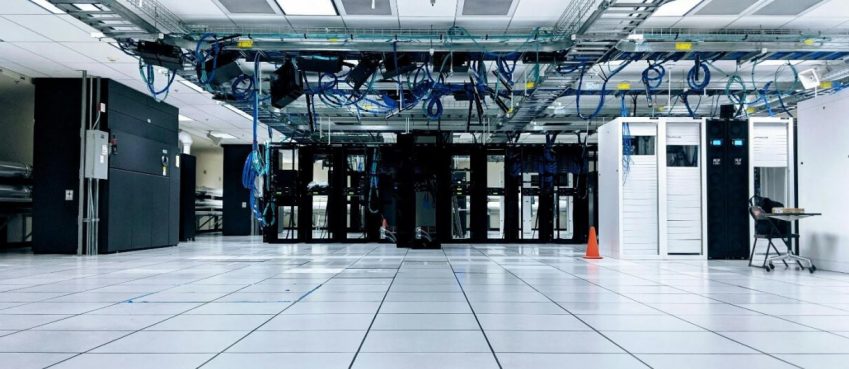
When technology is used responsibly, it can be a powerful tool to improve the lives of people around the world. However, when these technologies are misused or adopted without considering ethical principles, negative consequences for society as a whole can result. In this blog post, we’ll take a look at what ethical tech is and how its use should shape our current practices—what implications does its adoption have for businesses, governments, and individuals? We will discuss the importance of developing greater global consciousness around what constitutes ethical behavior from both producers and consumers of technology.
Understanding Ethical Tech and Its Importance
Defining The Principles of Ethical Technology
The digital revolution has changed the way we live, work, and communicate. We are now able to do things with technology that were unthinkable just a few decades ago. But with the increased power and capability of technology comes increased responsibility. Ethical technology not only keeps users safe but also encourages responsible behavior among developers, designers, and engineers.
Let’s take a look at the top principles of ethical technology such as designing for privacy and security, being aware of bias, designing with consumer wellbeing in mind, providing transparency, and creating trust.
Designing for Privacy & Security
Security should be built into all levels of a project from the beginning. End-users must be protected from malicious actors and have control over their own data. Companies should also make sure that their products use encryption to protect user data during transmission and storage. Additionally, companies should provide clear policies about how user data is collected, stored, and used. Furthermore, companies must adhere to any applicable laws regarding privacy and security.
Also read: 11 best ways to Improve Personal Development and Self-Growth and its Benefit on our LifeBeing Aware of Bias
It’s important to recognize that all technology has elements of bias built into it – whether intentional or unintentional – that can lead to inaccurate results or unfair outcomes for certain users. Developers must strive to create systems that are free from bias by utilizing principles such as diversity in teams, testing algorithms on diverse datasets, taking into account different perspectives, avoiding language or images that could be offensive, understanding the impact of existing biases in society, providing options for users to opt-out or customize their experience and monitoring usage patterns for signs of abuse or discrimination.
Designing with Consumer Wellbeing in Mind
Developing products with consumer well-being in mind ensures consumers are making informed decisions when using products. This means developers need to consider factors like ease of use, accessibility for those with disabilities, and health risks associated with certain technologies. It’s also important to think about environmental sustainability when creating products—minimizing energy consumption and waste production is key here.
Providing Transparency
To build trust between developers and end-users, consumer transparency is key! It’s essential that developers provide detailed information about how data is collected, stored, and used as well as what measures are taken to protect user privacy & security (as mentioned earlier). Transparency also applies when it comes to pricing models—consumers should know what they’re paying for upfront so there are no surprises down the road.
A large part of transparency is in meeting your consumers where they’re at in their understanding of tech and being aware of the ways reviews and information about your tech may be shared. Sites like taskrix and many others allow consumers to gain a clearer understanding of how tech is being used in our modern world and provide real reviews that look into the legitimacy of various tech resources—making it even more important that developers are transparent and clear about the intentions and use of their tech developments.
Creating Trust
Last but certainly not least—trust needs to be established between developers & end-users/consumers if a product or service is going to be successful over the long term. This requires clear communication around how data will be used as well as regular updates on any changes made over time (including bug fixes & features added). Additionally, providing quality customer service can help build trust between users & developers—ensuring customers feel heard & valued goes a long way.
Also read: How To Download YouTube Vanced APK + Best AlternativesCommon Practices That Are Considered Unethical
There are a number of tech practices that can be considered unethical, such as selling users’ personal data without their consent or knowledge, manipulating algorithms to mislead users into making certain choices, collecting vast amounts of user-generated content from underage or vulnerable populations and using it to make profits without payment, or creating technologies that facilitate surveillance of citizens. These practices not only violate ethical standards within the tech world but can also have far-reaching implications for civil liberties when used by governments. It is important that companies in the tech industry think carefully about the ethical implications of the products and services they develop, in order to avoid being complicit in activities that could cause harm.
The Impact of Unethical Tech
Unethical tech has had a massive impact on our lives, especially in a digital age that has taken over so much of our everyday routines. Misuse of personal data, the proliferation of “fake news”, and increasing surveillance have all left many feeling uncomfortable about the state of our current technology landscape. What’s worse is that the effects go beyond our private concerns—too often organizations operating out of ethical lines have been allowed to flourish due to regulatory failure, leading to long-term economic damage. Understanding the scope and breadth of unethical tech and developing robust measures to prevent its behaviors are essential for protecting us from future fallout.
Examining the Different Types of Ethical Technology
Advances in technology have created a need to reexamine ethical considerations around its use of it. From drones to facial recognition software, developers must now grapple with the implications their technology has on users, consumers, and society as a whole. Technology ethics can range anywhere from basic data privacy considerations to questions surrounding the purpose of artificial intelligence – making an assessment of which is right or wrong a difficult but increasingly important undertaking. Evaluating technology from an ethical perspective requires critical thought and often requires us to be cognizant of not just our immediate needs, but of future demands and developments as well.
Many innovative companies are using artificial intelligence to improve efficiency by increasing accuracy and speeding up response times. This in turn can result in faster production rates and better quality services, which can ultimately lead to increased dollars for businesses and potentially enhance customer satisfaction levels. Additionally, technological advancements have enabled scientists and medical researchers to gain deeper insights into virtually any area of study due to powerful data analysis capabilities—identifying more efficient treatments and accelerating the pace of research.
Ethical technology is not something we can simply ignore. It should be a priority for everyone to understand the broader implications of their tech-related decisions, and to strive for honest, equitable, and ethical practices. We have an obligation to our society, our environment, and even ourselves to use technologies that are safe, secure, sustainable, and moral. As the digital age continues to evolve, the importance of ethical technology will only increase. It’s up to us to ensure this happens by advocating for responsible tech usage and by continuously equipping ourselves with information on ethical technology. With that knowledge at hand and when properly implemented worldwide — this could lead to positive outcomes such as improved work efficiency, lower inequality overall, and more sustainability within our digital environment.
Top 10 News
-
01
Top 10 Deep Learning Multimodal Models & Their Uses
Tuesday August 12, 2025
-
02
10 Google AI Mode Facts That Every SEOs Should Know (And Wha...
Friday July 4, 2025
-
03
Top 10 visionOS 26 Features & Announcement (With Video)
Thursday June 12, 2025
-
04
Top 10 Veo 3 AI Video Generators in 2025 (Compared & Te...
Tuesday June 10, 2025
-
05
Top 10 AI GPUs That Can Increase Work Productivity By 30% (W...
Wednesday May 28, 2025
-
06
[10 BEST] AI Influencer Generator Apps Trending Right Now
Monday March 17, 2025
-
07
The 10 Best Companies Providing Electric Fencing For Busines...
Tuesday March 11, 2025
-
08
Top 10 Social Security Fairness Act Benefits In 2025
Wednesday March 5, 2025
-
09
Top 10 AI Infrastructure Companies In The World
Tuesday February 11, 2025
-
10
What Are Top 10 Blood Thinners To Minimize Heart Disease?
Wednesday January 22, 2025







